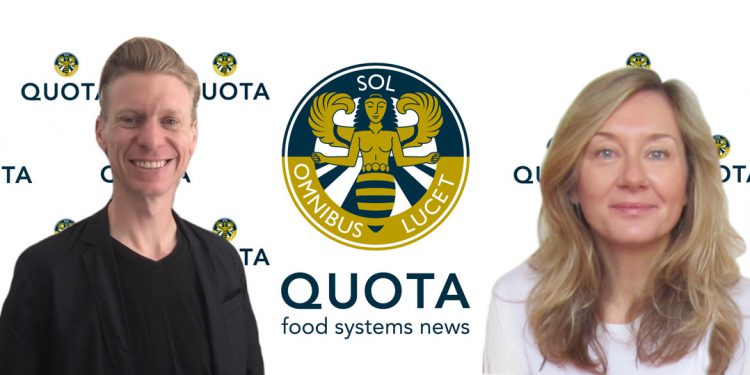When the early days of Covid-19 lockdown led to empty supermarket shelves, we were confronted with the fragility – and true importance – of food systems.
While much of society was furloughed, those in food were, and still are, essential workers. Many have been risking, and too many have lost, their lives, through exposure to coronavirus infection at work, in exchange for low wages.
Food is front of mind, essential in an economy that’s contracting and challenging many other sectors. So, given food’s fundamental importance, our headline re-appropriates the famous Clinton campaign slogan of ’92 in an America then suffering recession, “It’s the economy, stupid.”
Food has long been a political weapon, revealing the competence and intent of those in charge.
The world produces enough to feed us all – but dysfunctional systems are killing 30,000 from hunger and malnutrition every day, often in countries producing abundant food supplies. Covid death figures pale into insignificance against that number. It’s the main cause of death in the world. And now, the economic impact of Covid-19 lockdowns could push an extra 500 million – or eight per cent of the world’s population – into poverty, creating further hunger.
Food has long been a political weapon
Unifying minds across business, policy and research must improve systems, in a food and agriculture industry worth US$8.7 trillion, and with food-related humanitarian aid now worth US$6.5 billion, in 32 of the world’s 53 food crisis countries.
The United Nations has been working toward eradicating hunger and poverty by 2030 – but this is looking less and less possible. Even before Covid-19 was labelled a pandemic, the World Economic Forum acknowledged the urgent need for change in order to feed us all. Only excellent food systems will meet the challenge.
Globally, more than 1 billion people are employed in agriculture alone, a third of the workforce. Factor in the rest of the food system and that’s a lot of us with a role to play in fixing food.
We see food at the centre of historic change from the Corn Laws in the 1790s (which inspired the launch of The Economist) and their subsequent repeal, to sugar boycotts playing a part in the fight to abolish slavery.
Food systems reflect the breadth and complexity of economic relationships
The Irish famine from 1845, the Great Chinese Famine from 1959, and the Ethiopian famine of the 1980s remain lodged in our collective psyche, and referred to when political warning signs appear. Both World Wars stretched our ability to organise food systems to their limits.
Food systems reflect the breadth and complexity of economic relationships, from global infrastructure, all the way through to what goes in our mouths.
The need for joined-up food systems seems so obvious. We, Quota’s founders, kept coming across examples of how greater co-operation between policy, business and research professionals would radically improve food for everyone.
Our survey found better alignment will fix food systems
We conducted research to delve deeper into this – and the evidence was overwhelming. Food-related deaths would dramatically decrease if the professional food silos were broken down.
So here we are – bringing the community together through news and events. By always asking the business, research and policy communities to consider one another, by presenting their news in an integrated format, and combining their insights and aspirations through our events, we will strengthen the relationships across food systems for the greater good of food security in the long term.
Quota’s motto, sol omnibus lucet, the sun shines on everyone, observes that under the same sun, we all have a role to play. And, we all suffer when food systems fail.
Send us your news, join us in the conversation…
We came across the bee goddess in our logo in the British museum. She’s from the 7th century BC, was found in Rhodes, and her worship dates far further back. She’s a fitting icon for Quota, representing the vital role bees play in complex food systems, the pollination of ideas and improved relationships that are Quota’s aim, and also the great pleasure that honey has always been – our first sweet treat long before sugar crops were developed.
So welcome! Send us your news. Pitch us those stories that people in business, research and policy need to know about it. Join our events. Submit your work for our awards. Look for work and advertise jobs with us. Develop really powerful advertising partnerships.
You’ll find that Membership, with its discounts and benefits, is really worth the subs. Make sure you receive our free briefing direct to your inbox. Keep an eye on our recorded interviews with the world’s food experts via Omnibuzz. Keep the conversation going, all day every day via our LinkedIn group Quota Says.
And together, let’s fix food.























